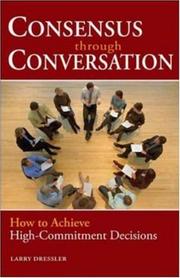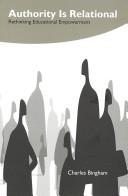| Listing 1 - 10 of 693 | << page >> |
Sort by
|
Book
ISBN: 1000706842 1000705862 0429351984 9780429351983 9781000706352 1000706354 9781000706840 9781000705867 9780367369347 9780367369354 Year: 2020 Publisher: London
Abstract | Keywords | Export | Availability | Bookmark
 Loading...
Loading...Choose an application
- Reference Manager
- EndNote
- RefWorks (Direct export to RefWorks)
"Under what conditions are obedience and disobedience required or justified? To what or whom is obedience or disobedience owed? What are the differences between authority and power and between legitimate and illegitimate government? What is the relationship between having an obligation and having freedom to act? What are the similarities and differences among political, legal, and moral obligations?..." Originally published in 1972, Professor Flathman discusses these crucial issues in political theory in a lucid and stimulating argument. Though mainly concerned to develop his own modified utilitarian standing point he also reviews both the classical and modern literature from Plato and Hobbes to Hare and Rawls. The treatment is philosophical but it is frequently related to practical issues of civil obedience and disobedience and in particular focuses on the relation between law, obligation and social change.
Book
ISBN: 1443892130 9781443892131 144388880X 9781443888806 Year: 2016 Publisher: Newcastle upon Tyne, UK
Abstract | Keywords | Export | Availability | Bookmark
 Loading...
Loading...Choose an application
- Reference Manager
- EndNote
- RefWorks (Direct export to RefWorks)
In a twenty-first century which celebrates freedom and equality while also beginning to question the lax attitudes and methods which have triumphed since the late Sixties, reflecting on the concept of authority is as necessary as ever. What role does, and should, authority play in political, social, and academic organization? Should one plead for stricter or more flexible authority? Where does the frontier between authority and authoritarianism lie? In examining these, and other related questions, this volume, postulating the interconnectedness between authority and discourse, also discusses t
Authority. --- Political science --- Authoritarianism --- Consensus (Social sciences)

ISBN: 1282299387 9786612299384 1576759350 1576754197 9781576754191 9781576759356 9781609943325 1609943325 9781282299382 661229938X Year: 2006 Publisher: San Francisco, California
Abstract | Keywords | Export | Availability | Bookmark
 Loading...
Loading...Choose an application
- Reference Manager
- EndNote
- RefWorks (Direct export to RefWorks)
Facilitation expert Larry Dressler's Consensus Through Conversation is a guide for the effective facilitation and practice of one of business's most popular - but most widely misunderstood - decision-making models: consensus.
Book
ISBN: 1605095753 1282960784 9786612960789 1576759008 9781576759004 9781282960787 9781605095752 9781576754450 1576754456 9780495602637 0495602639 9780495599968 0495599964 6612960787 Year: 2009 Publisher: San Francisco Berrett-Koehler Publishers
Abstract | Keywords | Export | Availability | Bookmark
 Loading...
Loading...Choose an application
- Reference Manager
- EndNote
- RefWorks (Direct export to RefWorks)
Based on nine years of research, The Power of Collective Wisdom shows how we can reliably tap into the extraordinary cocreative potential that exists whenever human beings gather together. Stories and historical examples illustrate how collective wisdom has emerged in a range of cultures, settings, and traditions, and the authors offer a set of practices to help readers realize the key lessons of the book. Equally important, they describe how to recognize the pitfalls of polarization or false agreement that lead to collective folly. Ultimately, this book emerges from a deep conviction that we all have a stake in each other and that what binds us together can be greater than what drives us apart.
Group decision making. --- Consensus (Social sciences) --- Leadership.
Book
Year: 1990 Publisher: Nomos Verlagsgesellschaft mbH & Co. KG
Abstract | Keywords | Export | Availability | Bookmark
 Loading...
Loading...Choose an application
- Reference Manager
- EndNote
- RefWorks (Direct export to RefWorks)
Die Folgen der Glaubensspaltung stellten auch die Frage nach der politischen Einheit neu. Deren neuzeitliche Theorie findet bei Hobbes ihren Schlüsselbegriff in dem gegen die überlieferte Bedeutung bloßer Stellvertretung geprägten Gedanken der Repräsentation des politischen Gemeinwesens. Kant suchte diesen Gedanken durch Aufklärung des Monarchen mittels der öffentlichen Meinung zu rationalisieren, Fichte dagegen will die Verantwortlichkeit monarchischer Staatsrepräsentation durch ein Gegengewicht in der Verfassung sicherstellen und verfängt sich damit in den Fallstricken der Hobbesianischen Repräsentationslogik. Vor diesem Hintergrund zeigt sich die Entwicklung der Staatsphilosophie Hegels von der Jenaer Kritik des Naturrechts über die Verfassungsschrift von 1802 und die Ständeschrift von 1817 bis hin zur Rechtsphilosophie als ein Versuch, den Repräsentationsbegriff, an einen älteren Strang der theoretischen Überlieferung anknüpfend, als ein zwar notwendiges, aber dennoch nur zusätzliches Moment der Vernünftigkeit des Staates der sich abzeichnenden Klassengegensätze neu zu verorten.
Book
ISBN: 1604915366 9781604915365 9781604915358 1604915358 Year: 2014 Publisher: Greensboro, NC Center for Creative Leadership
Abstract | Keywords | Export | Availability | Bookmark
 Loading...
Loading...Choose an application
- Reference Manager
- EndNote
- RefWorks (Direct export to RefWorks)
Experience Explorer helps managers explore their most memorable workplace experiences and what they learned about leadership from those experiences. The tool is based on proven research that has examined leader's experiences in several different countries and over many years. Experience Explorer accelerates leadership development-enhancing leaders' ability to learn from experience with a simple, energizing process brought to life in a variety of settings and with leaders at all levels.

ISBN: 0791478386 1435653300 9781435653306 0791474038 0791474046 9780791474037 9780791474044 9780791478387 Year: 2008 Publisher: Albany State University of New York Press
Abstract | Keywords | Export | Availability | Bookmark
 Loading...
Loading...Choose an application
- Reference Manager
- EndNote
- RefWorks (Direct export to RefWorks)
A must read for anyone who wants to think in depth about contemporary classrooms.
Education --- Authority. --- Political science --- Authoritarianism --- Consensus (Social sciences) --- Philosophy.
Book
Year: 2013 Publisher: Paris, France : Éditions de la Sorbonne,
Abstract | Keywords | Export | Availability | Bookmark
 Loading...
Loading...Choose an application
- Reference Manager
- EndNote
- RefWorks (Direct export to RefWorks)
Aux deux derniers siècles de la République, et surtout à partir des tribunats des Gracques, les membres de la classe dirigeante romaine utilisèrent la notion de concordia dans les débats qui les opposaient les uns aux autres. Par leurs discours, ils entreprenaient de garantir ou de restaurer les conditions nécessaires à cette concorde des citoyens, et surtout à celle des principaux d'entre eux, les aristocrates, dont l'histoire démontrait qu'elle avait été réalisée par les ancêtres. Dans un contexte de conflit civil, la notion de concordia devint un idéal, car elle était conçue comme la condition indispensable à l'exercice d'un pouvoir de type collégial, c'est-à-dire au maintien, à la tête d'un empire, d'un groupe, les sénateurs, dont l'égalité de puissance impliquait qu'ils s'entendissent pour un accès réglé au faîte des honneurs. Mais parce qu'il s'agissait d'un idéal commun à tous, et alors que les oppositions entre sénateurs se radicalisaient à la fin de la République, cette notion devint le lieu d'un conflit politique majeur lorsque la capacité d'un aristocrate à rétablir ou à maintenir la concorde fut considéré comme un critère décisif de légitimité. L'échec de ce modèle constitua une des évolutions qui conduisit alors au premier triumvirat, puis à la dictature de César, lorsque la concorde ne fut plus cet idéal commun à toute une aristocratie, mais ce que devait défendre une poignée d'entre eux, et finalement un seul.
Consensus (Social sciences) --- Political leadership. --- Politics and government.
Book
ISBN: 1597976261 9781597976268 9781597974073 1597974072 Year: 2009 Publisher: Washington, D.C. Potomac Books
Abstract | Keywords | Export | Availability | Bookmark
 Loading...
Loading...Choose an application
- Reference Manager
- EndNote
- RefWorks (Direct export to RefWorks)
Toward a new consensus on rights and responsibilities
Consensus (Social sciences) --- Equality --- United States --- Race relations.
Book
ISBN: 1283262517 9786613262516 1550924818 Year: 2011 Publisher: Gabriola, B.C. : New Society,
Abstract | Keywords | Export | Availability | Bookmark
 Loading...
Loading...Choose an application
- Reference Manager
- EndNote
- RefWorks (Direct export to RefWorks)
A step-by-step guide to the most efficient and effective method for participatory group decision-making
Group decision making. --- Consensus (Social sciences) --- Group facilitation.
| Listing 1 - 10 of 693 | << page >> |
Sort by
|

 Search
Search Feedback
Feedback About UniCat
About UniCat  Help
Help News
News